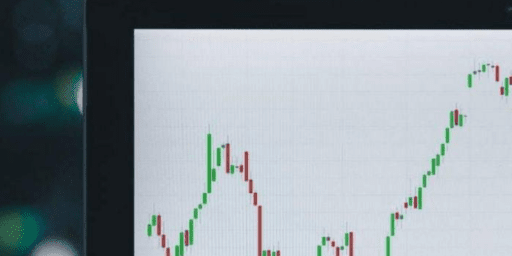How to Read and Understand Business News
Do you ever read the business news and find yourself wondering exactly what you should or shouldn’t believe? Do you find yourself thinking there is a “big picture” behind the story and you just don’t know what it is?
And have you ever noticed that at almost any point in time there is an “apocalypse du jour” – a serious event widely predicted in many news stories for months that never happens? Remember Y2K? More recently, we had fears of a debt collapse in the U.S., Europe and then in Greece, the collapse of the dollar because “the Fed is printing money”, and recession fears from the debt ceiling debate and the “sequester”. That is six stories in a row that did not happen!
All these stories were widely covered all over the news for months and then just did not happen. Why are forecasts in the business news so often wrong?
Based on my experience, here is what you need to know:
Market calamities forecasted in the news are unlikely to happen
Most of these stories are either wrong (like Y2K), exaggerated (like U.S. debt), or assume that nobody will do anything about it (like the collapse of the European Union).
News rarely affects markets much because it is already “priced in”
If you read or hear the same news story in more than one place, it is likely investors already include it in the price they are willing to pay for stocks. If it then happens in the way it is expected to, it should have little or no further effect. What moves markets is surprise.
The news tells you the mood of the market
When you see many stories predicting a market crash, it is best to interpret this as telling you that investors in general are pessimistic. Don’t worry about the event. Just read the story based on what it tells you about the mood of investors.
Most of the time, there should be a balance of optimists and pessimists. When the general mood of investors becomes quite extreme in either direction, you can assume it will likely normalize soon. Overly pessimistic markets tend to rise. Overly optimistic markets tend to fall (or just go nowhere for a while). Moods always tend to normalize over time. How long can you stay terrified?
For example, in October 2012, news stories bombarded us with fears of a U.S. recession because U.S. debt was too high and two artificial deadlines were looming (“debt ceiling” in December and “sequester” in March 2013). I felt that the mood was far too pessimistic, which told me it was a good time to invest. All the fear was priced in and exaggerated. As the fear subsided, the S&P500 shot up 21.2% from November to May 2013 (Morningstar).
What is the mood today?
Despite the big rise in the last 6 months, most investors are still pessimistic. News is focused on the next “apocalypse du jour” – will the markets collapse when the Fed stops stimulating?
The news media is good at telling you the general mood of people or of investors, but it is nearly hopeless for predictions. In the meantime, educate yourself by reading a few of our other articles such as:









Hey FT,
The S&P500 is roughly at fair value, but is still very cheap compared to bonds. The long term average P/E is about 15, but has been over 20 when during times like today with very low interest rates.
In general, I think the easy money has been made in the U.S., but there is still a lot of reason to be optimistic.
However, our fund managers are telling us the best opportunities today are in Europe (which is a couple of years behind the U.S. in its recovery) and in some of the emerging markets.
Ed
@Ed, i’m hoping for something a little more drastic from the debt ceiling news so that I can deploy more cash! What are your thoughts on the current valuation of the S&P500?
This topic is relevant again with a new “apocalypse du jour” – the current political turmoil in the U.S. What happens if the U.S. defaults on its debt? I have talked with a few people thinking of selling quickly before October 17 and can sense the fear in the market coming back.
Remember, the news does not predict anything – it just tells you the mood of the market. The current pessimism is a buying opportunity (a modest one), not really a reason to sell. It is important with stock market investing to stay invested for the long term and not sell out every time there is some bad news.
Why should we not sell in a panic before October 17?
1. They will almost definitely have a last-minute deal, just like every other time the debt ceiling has come up. Both sides know that not paying the Visa bill when it comes due is a bad idea.
2. The worst case scenario is not that bad. Dale Carnegie principles advocate dealing with worry by assuming the worst case scenario would happen. If they default, it would hurt the bonds, because the U.S. credit rating may be reduced a notch. This might push interest rates a bit higher and thereby reduce corporate profits a bit. The effect on the stock market (other than short term speculation) would be based on the effect on corporate profits, which should be modest.
3. Whenever the political wrangling ends, the market mood will likely be better, so the market is more likely to go up than down.
Remember, the news does not predict anything. It just tells you the mood of the market.
Ed
More big news from the private equity front:
i) http://www.ncfacanada.org/proposal-to-allow-equity-crowdfunding/
ii) http://www.thestarphoenix.com/business/Proposal+allow+equity+crowdfunding/9009555/story.html
Highlights:
-Businesses will be able to make two, six-month offerings of $150,000 each during a year.
-The business cannot charge investors a commission or other amounts.
-Both the business and the investor must be located in Saskatchewan
-No person may invest more than $1,500 in an offering.
“Equity crowdfunding is slightly different in that…individuals are investing in a company, product, or service. Businesses sell securities like shares, limited partnership units and promissory notes – investors buy a stake in a small business or start-up.”
As touted, private equity makes you an actual investor in the actual company, compared to a shareholder who doesn’t really have any ownership ties to the underlying company and merely trades the marketplace. An investor will always be closer to the source of profit than a shareholder, thus making greater returns.
Maxed out, an individual can acquire 0.5% of any yearly offering.
Similar to my established pure oil play which pays a 55%+ annual return. Get on the right train, and that $1,500 could give a person a healthy return.
It’s a small start, one domino…but the Sask. gov’t has been quite aggressive this last decade in moving the province into the forefront of investment and business practices. Good for them. Hopefully the rest of the country will follow.
*HUGE NEWS*
Canadian exchanges push to relax private placement rules
http://www.reuters.com/article/2013/09/20/canada-venture-financing-idUSL2N0HG1FH20130920
It’s basically an incredibly tame version of the US’s JOBS Act, but a step in the right direction.
As per the article: “The change would level the playing field for retail investors, who are shut out of private placements…it allows existing shareholders to participate in the growth of the companies they are already shareholders in.””
As a stockholder you will be able to actually buy into the underlying company (as opposed to only not owning anything via common shares). You will now have access to greater returns due to being closer to the source of profit.
If this flies unencumbered, I would highly suggest buying shares in Onex (OCX) right out of the gate.
(I know this will get lost in the slew of Monday’s ‘Best Virtual Broker/Cash Back Credit Cards’ postings, so I’ll be back to give it a bump. ;) )
And now for some actual great business news:
Provision III of the recent US JOBS Act makes private equity investment open and available to each and every American citizen.
Pre-JOBS, only 1% of Americans were qualified to access the private equity market.
This is the beginning of a *MASSIVE* market movement.
Certainly there will be crashes and burns (think dotcom), but investor risk is limited right out of the gate via the yet-to-be finalized SEC rules (perhaps end of year). Risk wholly recognized, it puts the investor far, far closer to company profits compared to common stock holders.
As well, this will mean a much less restrictive operating environment for companies (established or start-up) looking to secure capital. These companies will no longer be restricted to seeking venture capital/angel investors which almost always take a huge chunk of the pie. Said company can now keep more of their cash, and more corporate control, in order to (hopefully) feed and grow the business.
How this will effect Canadian investors is up in the air, but we can expect a lot more millionaires to appear on the US landscape, far more than we’ll see on the restrictive Canuck side.
Perhaps the best thing is that the spark originated from a beer company!
Hi Andrew,
You asked about my optimism. I am optimistic long term because stock markets have historically quite reliably had strong gains long term (20+ years).
About 75% of the time, the stock market is up in a year. You should be optimistic most of the time!
“When you think long term, optimism is the only realism.”
Short term market opinions are always speculative and may or may not turn out right. However, my view tends to be the opposite of news, since I know that news is already priced in. Plus for some reason that I still don’t fully understand, the market calamities in the news almost never happen.
Therefore, the more negative the news, the cheaper the market tends to be and the more bullish it is when the news either does not happen or turns out to be exaggerated (more than fully priced in).
News is usually negative and usually a horrible forecaster, yet most investors tend to believe it. That is why I am usually optimistic short term. In the last few years, I have always believed I know something that most investors don’t and that most investors have been far to pessimistic.
In short, long term you have to be optimistic. My short term opinion may or may not be valid, but is also that investors and news are far too pessimistic. And the markets are cheaper today than their historical average, especially compare to times with such low interest rates.
Put those 3 factors together, and I am very optimistic.
Ed
@SST
Your quote is a good example of today’s news and how it affects things:
“Has QE et al also been priced into the market?
And how likely have those stimuli moved markets?
Or is it all based on “earnings”?”
The news today is about “tapering”, or plans to phase out the QE stimulus. Tapering is generally expected to start this fall, but many still believe it will be delayed.
I have heard people say they are cautious today because they market may go down if tapering starts in fall. However, the market is highly unlikely to drop from tapering starting in fall. The market is always anticipating.
For example, the market was down a bit today supposedly because it is pricing in the effect of tapering. If tapering then happens in the way expected, it should not affect the market at that time.
—–
Your question was about whether QE is priced in. It is priced in to the degree that most investors believe it is affecting the companies in the stock market today.
I think most investors believe that QE has had a significant effect and has been one of the main drivers of the huge bull market from 2009-13. There is a variety of opinion, but the general belief seems to be that it has had a significant effect. These same investors must, therefore, also believe that reducing QE should also have a significant effect.
My personal opinion is that QE has had no effect at all. In fact, it has had a negative effect by leading people to believe that government stimulus is the main driver of the stock market. Investors seem to have forgotten the entrepreneurial spirit of the market and are mainly focused on macro economics.
My opinion is that the government buying of bonds with QE has mainly ended up with cash sitting on the banks’ balance sheets and has not been lent out. It has not hit the broad economy or had much effect on corporate profits. The banks were required to raise their reserves and have been cautious in lending, so the “multiplier effect” of each dollar being spent 6 times each year that economists talk about did not really happen.
Market insight can come when you think you know something that most investors don’t. I think that “tapering” in the news is a classic case of “fear of a false factor is favourable”.
I believe that QE had little or no effect, and therefore phasing it out with “tapering” should also have little or no effect. Today, the market is pricing in tapering already, but I believe investors will eventually find that the economy and stock market will perform quite well during tapering. If I’m right, this could be favourable.
My point here is that the events themselves rarely move the market. Markets move months or years earlier in speculation of what the events are. The events themselves are only likely to have an effect if they turn out to be far different than what was expected.
Ed
re: “The famous quote: “The masses are always wrong.” is primarily true…”
Does this then mean the masses are not responsible for driving stock prices higher over the last four+ years? If not, then what/who has been doing all the buying?
And if it is the masses who have created the best bull market of the last 60 years…then they must be wrong.
The begining of the quote goes something like this:
“Anybody that can see the opposite of what’s going on, I think is exceptional.” — Bukowski
re: “All these things [fears in the news] have been priced into the market and were highly unlikely to move markets.”
Has QE et al also been priced into the market?
And how likely have those stimuli moved markets?
Or is it all based on “earnings”?
People, the masses, should heed “all the bad negative news” — from *quality* sources — in regards to the real economy, and not the fairytale that is the stock market, which has become some bizarre government Dr. Feelgood.
p.s. — the disclaimer was a nice tease.
Really, Steve? You think most investors don’t believe business news?
My experience is that most investors tend to believe the fears in the news. We just went through almost 3 years of constant bad news about Europe. I’ve talked with many investors and there have been many posts on MDJ from people worried about the stock market because of fears of Europe – a debt collapse or Euro falling apart.
Then in fall of 2012 just before the latest debt ceiling debate in the U.S., suddenly many posts on MDJ were pessimistic. I talked with dozens of investors last fall that suddenly had a “gut feel” that we were just about to have a downturn.
All these things have been priced into the market and were highly unlikely to move markets. In fact, these fears were largely priced into the market even though the Eurozone is not going to fall apart and the U.S. is going to continue to pay the interest on its debt. All the bad negative news is more likely to mean a relief rally as investors eventually realize their fears have been overblown.
The famous quote: “The masses are always wrong.” is primarily true because most people tend to believe the business news and use it for investing purposes.
Ed